#character: richard crawford
Text
Whumptober 2022 day 11
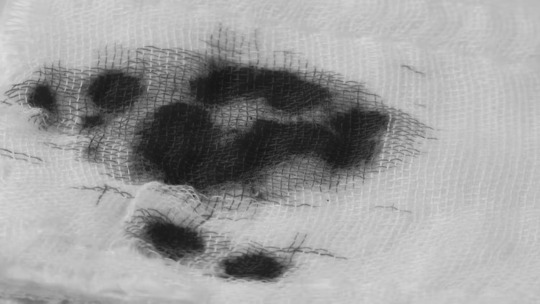
Sloppy Bandages | Self-Done First Aid | Makeshift Splint
EDITED on day 12. Much expanded, so the actual sloppy bandages come into play. Much indebted to Kay’s r63 version, thank you @stripedroseandsketchpads!
Set immediately after a previous Whumptober fic, "Stay with me", Richard nursing Francis in GoK (yep the season/timeline is a bit different here).
CW: aftermath of suicide attempt, overdose, prescription drugs, gsw reference, injury and bleeding. Description of wounds and stitches, references to sectarianism and terrorism.
---
Richard didn’t want to take his eyes off the stiff form on the bed. He might have scoffed and said this stillness was another trick of his brother’s only a few minutes earlier, but not now.
He had seen Francis swallow a reckless combination of pills and he had seen the abyss of base desire in his eyes. Richard had seen him beg for death, and he would never forget the way Francis had looked: curled upon himself, terrified that Richard might force him instead to live.
He had been right, of course - and perhaps, Richard shuddered, he had been right to be afraid.
After all, what had living past that moment entailed so far? A fist to the bullet wound in his side and a bruising, pitiless hold around his ribs as Richard had tried to force him to regurgitate the drugs he’d taken. And now - who knew? Richard sat paralysed by the horror of what he’d just been witness to, the battle he’d just fought. Francis' raw, urgent screams of pain rang in his ears and he felt the residue of saliva and powder on his fingers, recalling the visceral texture of Francis' tongue and teeth as Richard had tried to force him to vomit up the poison he'd taken.
He should never have had to experience that - driving his fingers down his brother's throat had been a violation, and it made Richard aware that even bringing Francis here amounted to the same.
He'd intended to take Francis to task for all the crimes he'd aided in; to speak on behalf of all the families whose relatives had gone missing within the vortex of mob violence that fed into the sectarianism across the water from Scotland. He'd wanted to see in his brother's eyes that he understood what he had done - and only then would he call Tom Erskine and tell him to come and collect his prize. After that? Francis would be probably be deported to face trial in the States. Richard would be free of him.
So why, when he looked at Francis’ pained, closed expression, was that suddenly the last thing he wanted?
His fine blond hair clung to his sticky temples, dark and matted. His forehead was furrowed like the hills and valleys surrounding the cabin. There was blood at the corner of his mouth and around his nostrils…and a dusting of golden stubble where he’d not shaved cleanly - under his jaw, in the curve below his bottom lip, up by his ears.
It was that which, unexpectedly, caused Richard to break down.
He’d been about to stand up and call for an ambulance, but instead a racking sob escaped him and he had to screw his eyes shut and pinch his nose to try and stop the tears from coming.
Gavin Crawford had taught his eldest son to shave, speaking of the sanctity of the ritual, the self-respect imbued in presenting a tidy jaw to the world. It showed you had a steady hand, ruthless when it needed to be, certain but not too domineering; it was a chance to look yourself in the mirror and affirm that you were in control of yourself, your body, your life.
But when Gavin had been away for work, teenage Richard had left the bathroom door open so he could hum along to the radio as he shaved. Ignorant of the solitary ritual Gavin has prescribed, sweeter company had always presented itself at the open door: curious, tousle-mopped and blond, and too short to see in the mirror Richard used. Francis and Eloise would sit on the edge of the bathtub kicking their heels against its side and laughing at the faces Richard pulled; telling him he’d missed a spot of shaving cream when he hadn’t; trying to make him jump when he was shaving the sensitive skin under his nose or over his Adam’s apple.
Gavin hadn’t taught Francis to shave. Richard had quietly hoped he might get the chance to do so himself, like he'd taught Francis the basics of the guitar and how to read music. By then, however, Francis had been studying in Paris - he’d come home one holiday with the skill already acquired, and had confidently elbowed his way into the space in front of the mirror beside Richard, still teasing him and trying to make him slip even as he made an immaculate job of it himself.
Richard had never tried to pass on what Gavin had said about self-respect and a steady hand - Francis seemed to have all that in order, even if it didn't look how Gavin wanted.
But even so, even after that, he had always been Richard’s baby brother, and somehow the sight of the imperfectly shaved face brought this home. Francis always, always strove to do things perfectly, without any show of weakness or sloppiness. The telltale specks of hair - where his hand hadn't been steady enough to reach without risking a cut - should have told Richard all he needed to know about Francis’ state, long before they had come to where they were now.
Thumping his chest with a fist, swallowing down his silent sobs, Richard made himself stand. Every second might count, and he’d been sitting there wasting time in maudlin contemplation - he couldn’t expect Francis to make a break for it, or to make any other attempts, even if Richard had to step outside the room for a moment. He wasn’t in a fit state to do anything. He might never be again.
It was this thought that finally spurred Richard to go to the landline to dial for the emergency services.
Only, when he picked the phone up, there was dead silence. In a panic, he shook it. He checked the plug and examined the cables; he depressed the hook switch again and again, but no amount of pressure or cursing changed the fact that the line seemed to be dead.
He went to the kitchen window and drew the curtain aside, letting out another curse. The snow had been coming down hard since darkness had fallen. It was already forming drifts on the slope that led down to the river at the back of the cabin, and several inches lay on the windowsill. Even if the phone line had been working - and at least now, Richard had a good idea of why it wasn’t - getting up to the cabin, or travelling down from it, was not going to be an easy task. He certainly wouldn’t attempt it now, with the snow still tumbling down in fat, resolute flakes, with Francis in such a precarious state, with night ahead and the likelihood the temperature would drop further.
So they were stuck there for now, Richard and the boy he seemed to have driven to the edge of suicide.
He returned to the bedroom and winced at what he noticed this time. From this side he could see how loose the bandages on Francis’ injury had become and how much blood had seeped into them after Richard’s rough treatment.
He'd been shot - he hadn't mentioned that to Tom Erskine, and when Richard had arrived at the hospital to catch him as he was discharged, he'd been grimly pleased by the news. He'd felt that Francis deserved it for meddling in the dangerous world of arms shipments and mob killings, for playing court jester to terrorists and murderers.
Only now, the matter of deservedness seemed gauche and trite to Richard - how could he feel horror at what Francis had allegedly abetted, and not feel the same horror now, looking at the slight, pale body on the bed? Francis' arms were limp and flat against the bed, his legs seemed to lie unnaturally no matter how Richard had arranged them, and his breathing was almost imperceptible, his head tilted slightly to one side on the pillow just enough that Richard could see the hollow v at the base of his throat flutter.
Cautiously, Richard approached the bedside and checked Francis’ pulse at his wrist. His first aid knowledge felt woefully dated and limited, but as he detected the sluggish throb of a heartbeat beneath his finger pads, he at least remembered that he should have had Francis lying on his side.
That would make the wound easier to see to as well, he supposed, grunting as the dead weight of Francis’ body resisted Richard’s effort to reposition it.
It was only when he put his hand down on the covers where Francis had lain that he realised how much blood must have come from the wound. The sheets were a dark navy blue and didn’t show the stain clearly, but it now streaked Richard’s palm and soaked into the knee of his suit trousers where he knelt on the mattress beside Francis.
God, he was doing everything backwards - mourning, then trying the phone, then getting Francis in a comfortable and safe position, then worrying about the blood - and Richard felt himself succumbing to panic. He was out of his depth and he kept messing up. If Francis didn’t make it, the possibility was that it would be because Richard hadn’t phoned quickly enough before the lines went down. That he hadn’t correctly posed Francis as all those pills washed around inside him. That he had re-opened some internal suture as he’d squeezed and shaken Francis over the sink like an empty washing up bottle.
“Francis,” Richard placed on hand on his brother’s wiry arm, where skin was hot and slicked with sweat. “Don’t bloody go anywhere. I’m going to bring the bandages here,” Richard told him.
Of course he received no answer, but Richard found that it felt good to break the silence in the room. The snow outside was acting as a dampener - beyond the electric hum of kitchen appliances and the perfunctory moan of the wind there was no other sound up here in the wilderness. Richard made himself hum a tune he used to play together with Francis and gathered up the plastic bag Francis had been carrying when he'd stepped out of the hospital.
Gauze patches, bandages, cotton swabs, antibiotics, sweets and a twenty-pack of fags. He'd been trying to quit, according to the tabloids. Things must have been bad.
Richard held the packet of pick'n'mix and sighed, casting a glance at Francis that plainly blamed him for reminding Richard once more of their shared childhood experiences.
He took the roll of bandage, the gauze and the swabs and brought them to the bed. He added scissors from the kitchen and a cup of warm, salty water to the collection - plus, for good measure, tea towels in case there was yet more blood to soak up.
Richard found it was a bit beyond him to hum and concentrate on this, so he put the radio on and tried to find a station that wasn't completely wiped out with static because of the weather. It wasn't an easy task, but on longwave there was something that sounded like a toothless old crofter singing Gaelic down a metal tunnel. It was atmospheric and it wasn't distracting because he didn't know enough of the language to listen closely, so Richard let it be the soundtrack to his ministrations.
He cut the loose old bandages away from Francis' skin and tutted at how pronounced his brother's ribs were beneath them. The fabric peeled away from greenish, bruised flesh that was still streaked with the edges of a blood stain the hospital staff had wiped away. Francis' body here was the colour of murky water, Richard thought, the colour of the brown brook outside the cabin, dull and muted compared to the shock of red where the wounds were.
Richard grimaced at the way the bandages and gauze clung, sticky and heavy with blood, over the fresh stitches. It seemed like such a lot of blood - he couldn't have known that Francis' capacity to bleed at least indicated that his circulation was coping with the amount of drugs he'd taken, that his body was still pumping oxygen around all of its damaged corners. All Richard knew was that the blood smelled sharp, that it reminded him of broken noses on the rugby pitch, that the sight of the sutures themselves made him whimper as reflux rose in his gullet.
He coughed and swallowed the inclination to be sick and pulled the bandages out from under Francis' body.
The only response to this trick - the magician pulling the tablecloth out from under the plates - was a harsh exhalation from Francis' nose, a deepening of his frown, and a clenching of his fists.
Richard put the used bandages in the bin immediately - lest they soak blood into any other surface - and dipped a swab into the salt water before changing his mind and wetting the teatowel.
It was the exit wound that seemed angriest. The stitches on Francis' back - the bastards had shot him in the back, Richard's mind shrieked. He was running away - was he running away? - and they'd shot him in the back - were tidy, the blood around them mostly dry and black as the thread of the stitches. The wound puckered at the centre like lips ready for a kiss, at Richard only dabbed once or twice, nervously, at it.
It was at Francis' front that things looked worse, and Richard tried to clear away the fresher blood, dreading what he'd see when he'd done so. He'd struck a blow in Francis' side, right here where he was most vulnerable, and he imagined that the sutures had torn through flesh, leaving behind jagged new wounds that had opened up beneath the pressure of Richard's knuckles...
Instead, there was just a slightly longer row of little black knots on this side of Francis' body, where the lips of flesh were held together as a join in cheap leather might be. They drooled a thin, pale-looking trickle of blood still, but it wasn't flowing as quickly as it must have been earlier, and Richard gave a sigh of relief. He was getting more confident with the salt water and the cloth and used as much pressure as he dared to try and clean the area. The flesh around the wound was swollen and pinkish, hot to the touch - though Francis' whole body was warm even in the chilly room with its single-glazed windows.
Troubled by this, determined that infection shouldn't be allowed to set in, Richard dabbed and fretted until a sound emerged from Francis' mouth.
It wasn't a word - just a slurred objection, an animal mewl of discomfort.
Richard flinched and cast the cloth away, resolved not to touch the wound again - though his heart now beat quickly, flooded with adrenaline.
It had been a sound that made Richard think that, somehow, Francis would be ok. If he was well enough to complain about Richard's nursing style it seemed he'd pull through the night. If he pulled through the night, there might be a chance to clear the snow tomorrow. They might get to a hospital, and then everything could be put right.
"Let's get you patched up, lad," Richard murmured warmly, opening a packet containing a gauze square with his teeth, his hands shaking with relief, his eyes stinging.
As though matching his mood, a jaunty guitar riff and a strident baritone broke through the static on the radio. Richard scoffed when he recognised it - though he shook his head ruefully because he knew how the story ended. He still grasped for reassurance from the fact that Francis knew it, and that he might be soothed to hear familiar music as he struggled through the wee hours. With his confidence bolstered by the defiant tune, Richard worked a fresh strip of bandage under Francis' body and drew it snugly over the gauze patches.
"Ye're no MacPherson, Francis Crawford," Richard murmured to him gruffly. "The reprieve arrived in time."
---
Fareweel ye dungeons dark an’ strong
Farewell, farewell to ye;
MacPherson’s time will neer be long
On yonder gallows tree
Sae rantingly, sae wantonly, sae dauntonly geid he
He played a tune as he danced around below yon gallows tree.
Now some have come for to see me hang
An’ some to buy my fiddle
But before ‘at I do part wi’ her
l’ll break her through the middle.
So he took his fiddle into both of his hands
An’ he broke it over a stone,
Sayin' “There’s no anither han’ll play on thee
When I am dead and gone.”
Sae rantinly, sae wantonly, sae dauntonly geid he
He played a tune as he danced around below yon gallows tree.
Oh what is death but parting breath
On mony the bloody plain
I've dared his face and in this place
I scorn him yet again
Untie these bands from off my hands
An’ bring to me my sword
An' there’s not a man in all Scotland
But I’ll brave him at a word.
Sae rantinly, sae wantonly, sae dauntonly geid he
He played a tune as he danced around below yon gallows tree.
The reprieve wis comin’ o’er the break o' dawn
Tae set McPherson free
But they put the clock a quarter before
And hanged him frae the tree.
Sae rantinly, sae wantonly, sae dauntonly geid he
He played a tune as he danced around below yon gallows tree.
Sae rantinly, sae wantonly, sae dauntonly geid he
He played a tune as he danced around below yon gallows tree.
[MacPherson's Lament/Rant/Farewell, trad. Scots. The version I was listening to was Noel McLoughlin's (a modern version and a bop), but Richard probably caught the Corries on one of the Island radio stations, which is more traditional but still excellent.]
#whumptober#whumptober2022#band au: game of kings#character: francis crawford#character: richard crawford#every day i write the book#no cut#long post
9 notes
·
View notes
Photo


My art has done some insane things in the past year or so. I decided to return to the world of webcomics and bring my trio from my old comic with me, with a fresh new story and an improved art style that I feel is finally where I want to be in order to create!! Seeing these two images side by side really makes me want to cry the happiest tears possible.
To anyone who is unsure, please keep drawing! Keep going! Work as much as you can on your art; it is a skill that needs to be honed and perfected like everything else and you never really stop learning. I know that AI art especially has a lot of artists feeling hopeless, but. Nobody who types a prompt into a bar is going to feel this kind of accomplishment and happiness. Keep doing what you love.
#art#webcomics#continue#ghost getters#ocs#lgbt#lgbt characters#richard potluck#lazarus crawford#wade
7 notes
·
View notes
Text
I finished Checkmate recently, which means I can finally go ahead and write a very important post!
Lymond Characters Ranked By Their Degree Of Transgender Swag*
Danny Hislop: listen to me. Listen. I 100%, no joke, believe that Daniel Hislop is canonically AFAB. There is zero evidence to contradict this and considerable evidence for it, if you count up every time Danny's small stature and beardlessness is pointedly mentioned, and also if you just look at how much swag he has.
Oonagh O'Dwyer: canonically was happy for exactly one afternoon in her whole life, and that was because she was passing as a boy during it. I am just saying.
Francis Crawford of Lymond and Sevigny: canonically extremely good at drag. Is God's specialest princess. Is apparently physically nearly identical to his half-sister, including their voices. High levels of transgender swag.
Robin Stewart: is canonically not trans, but a lot of his issues would be even worse if he was, nice, and he is also my favorite poor little meow meow so I'm claiming him.
Marthe: already has Gender Trouble up the wazoo, why not add a bit more. Is apparently physically nearly identical to her half-brother, including their voices.
Mikal: is already fem, bisexual, and the swaggiest character on this list. He could be anything he wants to be baby.
Adam: soft gentle bisexual artist who can also Murder. Decent amount of transgender swag.
Christian Stewart: pretty sure she's a cis lesbian and that's why marriage feels like death to her, but it could absolutely be because she's an egg!
Will Scott: again, very much a cis gay man, but AU transgender Will would be delightful.
Archie: I feel like Archie transcends gender, tbh.
Philippa Somerville: no trans swag but she'd definitely be an Ally.
Jerott: he's already confused about enough, let's not make it worse.
Margaret Lennox: my favorite failgirl villainess has zero swag of any kind.
Richard Crawford: always and forever the token cishet. Transgender swag levels terminally in the negative.
(*obligatory "just, like, my opinion, man" disclaimer goes here)
#lymond#the lymond chronicles#hello. i have only the most highbrow contributions for this fandom.#lymond chronicles#i forget what tag i was using
58 notes
·
View notes
Text
ten examples of characters calling Lymond “Francis” for the first time, or the first time on page! So many flavors of Francis feelings. Take your pick. (and let me know if I missed earlier instances)
Speakers and context:
Sybilla to the son she hasn’t seen in five years, as he breaks into her castle and sets it on fire. (first on page, The Game of Kings)
Margaret Douglas to the man who kidnapped her. They, too, haven’t seen each other in about five years. (first on page, The Game of Kings)
Christian to her anonymous friend at Threave. I normally wouldn’t count this, because she says his last name, but it’s THE REVEAL, and she calls him by his first name to Sybilla later in the chapter. (first on page, The Game of Kings) - “Francis Crawford: you’re another fool, playing Macarius with the lockjaw. I told you sound was my stock-in-trade. I’ve known your voice since I was twelve.”
Richard. The dell near Hexham. God, Francis had screamed. (first on page, The Game of Kings)
Oonagh when they wake up together and she declines to give him Artus Cholet’s name. And she’s quoting Sybilla? I desperately want to know more about that interaction. We get some information in Checkmate, but still… (genuine first Francis, presumably. Queens’ Play)
Will Scott after the Hough Isa scheme and after spilling soup on himself! (first on page, presumably not a genuine first, The Disorderly Knights)
Graham Reid Malett. What the fuck, dude. (first time directly to Francis, The Disorderly Knights) - “‘I desire,’ he said abruptly to Lymond, ‘to call you Francis. Is that permitted? It is out of affection and a … purely spiritual love.’”
Jerott after he finds Oonagh’s body. (first time on page directly to Francis. Given the context and the way the Francises begin to multiply soon after, I would believe it’s the first time he’s addressed Lymond that way in ten years. Pawn in Frankincense) - “She is more than dead, Francis. If I thought you would do it, I would beg you to go without seeing her.”
Marthe to her brother, at Volos, after he calls her his sister by reciting a poem. The turning point. (genuine first Francis, Pawn in Frankincense)
Philippa, after falling in love with her husband as they wreak sweet, lyrical havoc across the rooftops and through the traboules of Lyon. Before the rest of that night happens. (genuine first Francis, Checkmate)
#lymond#francis crawford#lymond chronicles spoilers#eight of these are devastating to me in their own ways#and then there’s Will!#and then. there’s Gabriel.#but it was necessary to include both of them#you see#poll#something i#you will note there are none from the ringed castle#that’s because it’s the ringed castle#lymond polls
38 notes
·
View notes
Text
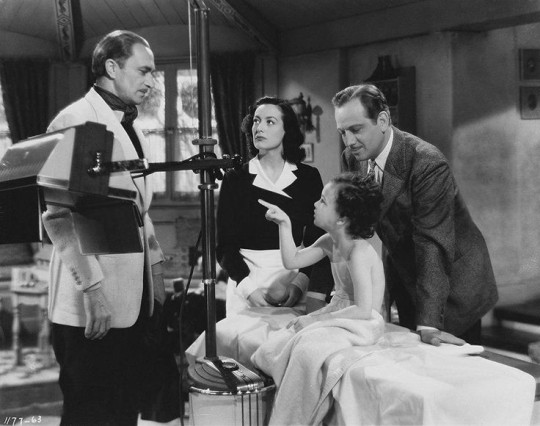
Love finding behind the scenes photos of Connie. I just wish we could have more out of character candid stuff of him.
-----
Conrad Veidt, Joan Crawford, Melvyn Douglas and Richard Nichols in "A Woman's Face" (1941)
33 notes
·
View notes
Text
So. I finished reading the Captive Prince trilogy in three days (just the novels, not the short stories) and I am feeling a lot of things, but mostly I'm feeling vaguely frustrated. It's hard to articulate how I feel. I enjoyed the books while I was reading them, even though some parts made me cringe. But that's not the problem.
The problem is the Lymond Chronicles by Dorothy Dunnett. I feel like at least some people who liked the Captive Prince books would love Dunnett but I've found that recommending the books rarely sticks.
If you're expecting an epic gay romance, you won't find it in Lymond. But a lot of the other elements in the Captive Prince series are there, along with great writing, a complex cast of characters, and plots and ploys abound. I don't read much historical fiction, but Dunnett was so good, it sucked me completely in, despite knowing very little of the history and setting. (Not so different from reading fantasy, really.)
Anyway! Spoiler warnings for all the Captive Prince novels and the Lymond Chronicles, though it's less explicit for the latter.
Let's get the obvious thing out of the way. My favourite book series is the Lymond Chronicles by Dorothy Dunnett, six historical fiction novels set in the 1500s, spanning from Scotland to Europe to Turkey to France, featuring a blond-haired, blue-eyed, minor Scottish nobleman known as Francis Crawford of Lymond. I'm sure other people have pointed out the similarity between the two series and the characters Laurent and Lymond and there has been analysis by people much more eloquent than me.
I started reading Captive Prince one afternoon and finished it before midnight. I went on to read Prince's Gambit simply because Laurent was acting so Lymond-like that I had to find out what he was up to. I immediately suspected he knew who Damen was from the start because that's the sort of annoying leaps of logic Lymond makes, with his cornflower blue eyes glittering with malice — that's how similar they are.
I'm not one of those people who can't enjoy a book because something like it has already been done before. I'm always looking for books that could bring me back to that same kind of excitement I found when I first read the Lymond Chronicles. One of the reasons I picked up Captive Prince was because of the comparisons made to Lymond.
It's just that I feel a bit cheated that, despite all the similarities, I don't think it would be easy to get people to read the Lymond Chronicles after getting into Captive Prince. It's too dense, too full of historical references, too many quotes in too many languages. Too clever.
Who knows whether the parallels in the two series were intentional or not. At the start of the first book, The Game of Kings, Lymond gets drunk before he goes off to rob his mother, Sybilla, and set her castle on fire. Here's part of his conversation with her. You can see why everyone around him wants to stab him. He's more loquacious than Laurent, at any rate.

Yes, he even has an older brother. Lymond goes and antagonises Richard almost immediately after this. I think that was the point where I started wondering, This is the man we're supposed to get behind? Quite the antihero, Francis Crawford of Lymond.
There are other things. They don't play the same part or advance the narrative the same way in both stories, but the fact that they are there just … I'm not even sure what to say. Imitation is the best form of flattery? There are disguises with hilarious consequences, trials where every single piece of evidence is disputed, exhilarating chases over the rooftops of Paris, whips and whipping posts, royal hunts that don't end well, ridiculous acrobatics on horses, babies of indeterminate parentage, your favourite characters ending up dead, Will Scott's mix of hero worship and wanting to strangle Lymond at the same time, and Jerott (I don't even know where we should toss Jerott).
Sometimes it's just a line, and I end up raising an eyebrow at it because it sounds so Dunnett. I'm not disparaging Pacat here; as I said earlier, I'm frustrated, because I feel more people should enjoy the Lymond Chronicles and Dunnett's writing, but they're not going to, because Dunnett was too clever and made the books too dense and witty and difficult.
If you do start The Game of Kings, though, I ask you to try to get at least to page 100 or so before giving up. That was where I decided that yes, this was definitely worth the effort.
I don't suppose I'm making much sense, but apparently I feel so strongly about this that I need to make a Tumblr post in an otherwise empty account. Go me.
PS: I liked Megan Whalen Turner's Queen's Thief series as well, though the first book is, uh, somewhat disappointing? I don't know if I had too high expectations or what. I loved the later books, though. For some reason, I still haven't read the last book in the series. I suppose I should remedy that.
#captive prince#c.s. pacat#the lymond chronicles#lymond#lymond chronicles#dorothy dunnett#books#books and reading#book recommendations
36 notes
·
View notes
Text
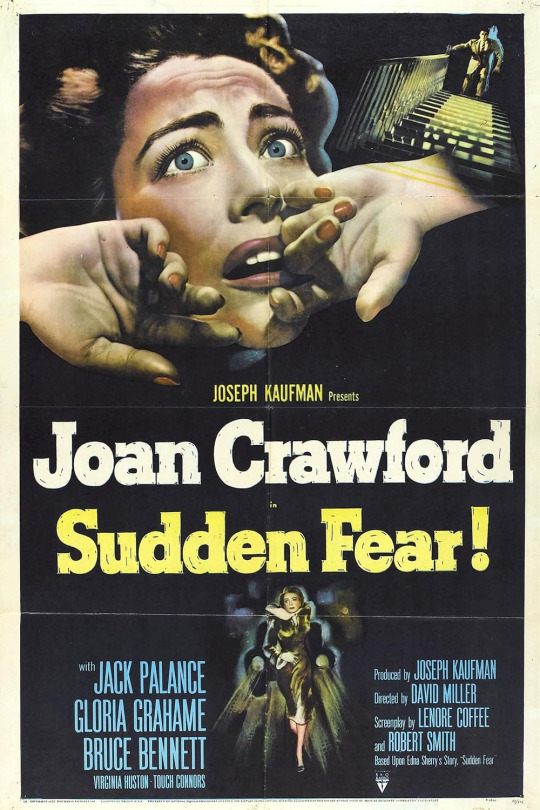
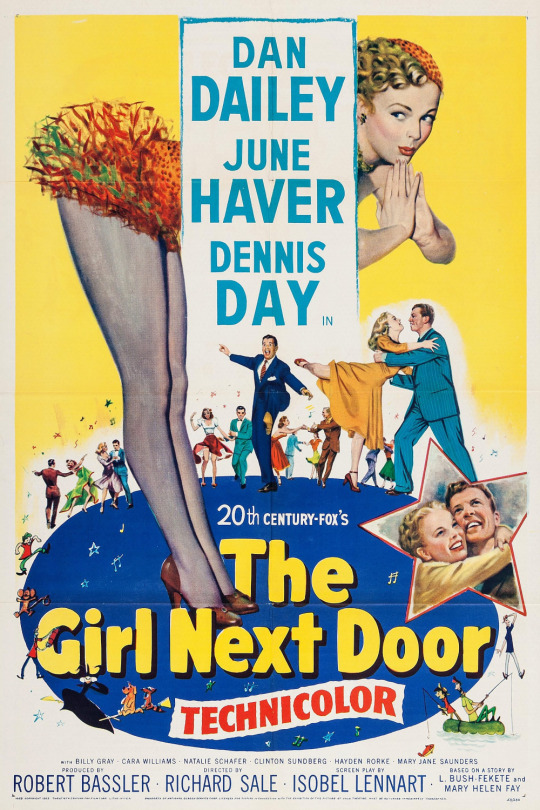
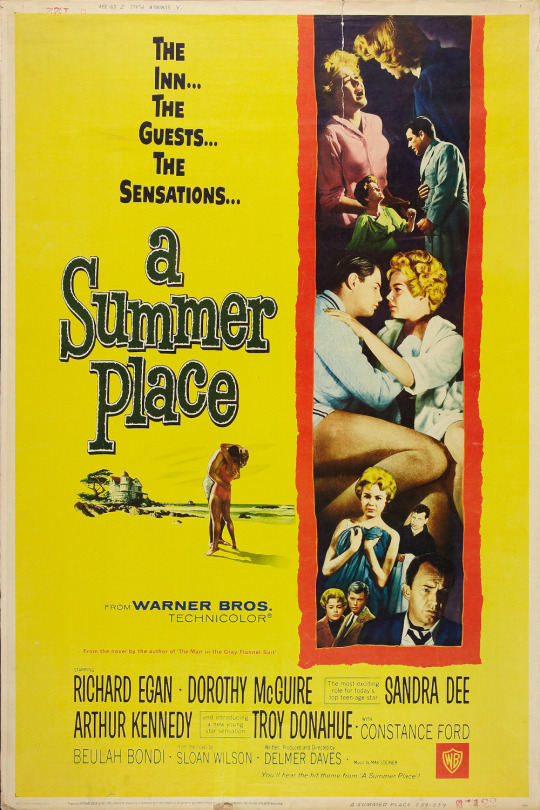
Haterating and hollerating in the 1950s:
SUDDEN FEAR (1952): Inventive but unsatisfying thriller about a middle-aged playwright and heiress (Joan Crawford) who discovers that her new husband (Jack Palance) and his ex-girlfriend (Gloria Grahame) are plotting to do away with her, and decides to concoct her own elaborate trap for the would-be killers, which doesn't go as planned. Palance is well-cast, walking an interesting line between charm and sociopathy, and the film gives Crawford one of her better '50s roles, but the script fails to pay off its own clever plot twists while allowing Crawford too many opportunities for her customary histrionics — particularly in a pair of over-the-top dream/fantasy sequences and in a crucial scene where the heroine has to express, without dialogue, that she's having second thoughts about her own plan. The finale, while undeniably tense and featuring striking nighttime cinematography by Charles B. Lang Jr., also feels like it belongs in a completely different movie.
THE GIRL NEXT DOOR (1953): Bright, attractively staged Fox musical (with two animated interludes) about the burgeoning romance between a successful stage star (June Haver) and her handsome new next-door neighbor (Dan Dailey), a comic strip artist and widower with a young son (Billy Gray) who's none too happy at this new competition for his father's attention. Haver and Dailey are great, and their easy repartee is very appealing. It's also interesting to see Dennis Day outside of his more familiar role as Jack Benny's idiot stooge. However, Billy Gray's character never quite rings true; there's no real reason for Joey to dislike the charming, good-humored Jeannie other than childish jealousy, so the story depends on his eventually getting over it rather than on Jeannie winning him over, which might have been more fun.
A SUMMER PLACE (1959): Overwrought Delmer Daves adaptation of a Sloan Wilson novel about two one-time lovers (Richard Egan and Dorothy McGuire), now unhappily married to others (Constance Ford and Arthur Kennedy), who decide to divorce their respective spouses so they can finally get married, only to face endless angst because their college-age kids (Sandra Dee and Troy Donahue) are also in love, in A Society That Just Doesn't Understand™. The story might have been considered daringly blunt by the standards of 1958–59, but to modern eyes, it succeeds mostly in putting the "turgid" in "dramaturgy." The script and direction are so unrelentingly heavy-handed that the actors seem like they're mining coal, with only Constance Ford (whose character is an unmitigated bitch) allowed to be anything other than laboriously tormented.
#movies#hateration holleration#sudden fear#joan crawford#jack palance#the girl next door#dan dailey#june haver#dennis day#a summer place#sloan wilson#delmar daves#sandra dee#troy donahue#richard egan#dorothy mcguire#constance ford#sloan wilson is best known as the author of the man in the gray flannel suit#a novel from which the tv show mad men borrows quite shamelessly#(it was made into a popular but so-so movie with gregory peck)
7 notes
·
View notes
Text
Old-Time Tradition: Folk Musical: Hello Dolly by Gene Kelly, 1969
Opening Thoughts
Gene Kelly's Hello Dolly (1969) is set in New York City in the 1890s, and follows the charming antics of widowed matchmaker, Dolly Levi (Barbara Streisand). While working as the marriage broker for wealthy business man, Horace Vandegelder (Walter Mathau), Dolly begins meddling in the romantic lives of Vandegelder's niece who is in love with a man he does not approve of, and of his head clerk whom he never gives a night off. All the while, Dolly is scheming to advance her own romantic aspirations. The story takes us from Yonkers to the shining streets of New York City where the characters experience life and love like never before.

What do the musical numbers signify about identity in the course of the film's narrative?
The film opens with a solo sung by Dolly, clearly conveying her charming, meddling, and involved personality. The song, "Just Leave Everything to Me", asserts her as someone who knows people, and whom specializes in arranging people's lives, singing, "I'll arrange for making all arrangements". This opening number sets the tone for the rest of the film as the rest of the characters soon fall into Dolly's respective plans for them. The firmness of her personality is further asserted in a musical number towards the end of the film, "So Long Dearie", where she does not bother to waste her efforts anymore on a man who rejects her. The next song, "It Takes a Woman" sung by Horace and an ensemble of men working at his shop, is a bit ironic as it is about how "it takes a woman, all powdered and pink/ To joyously clean out the drain the sink". This song makes audiences aware of the time period, as it speaks strongly to female identity, and how they were expected to perform all of the home keeping tasks, but with a smile of course. However, the song is quite silly as even though it puts the man in the position of power, it is Dolly who takes charge not only over her life, but of those around her including Horace's.
The film's narrative is one of finding love, and therefore, over the course of the film, the music creates a joyous and light hearted sense of being swept away in the various emotions love brings. Since the cast is primarily white, and follows the stories of white characters, the story is void of social issues that would be present in the lives of the cast were they not white during this time period. It is because of this I think, that the film is able to tell this story of love taking precedence over social and economic status.
youtube
youtube
What is the purpose of the songs in the character's lives?
Over the course of the film, the musical numbers convey the desires of the main cast, whether they are waiting for love, wanting to experience new things in life, or moving on from mourning. For example, Cornelius (Michael Crawford) and Barnaby (Danny Lockin), two young men who work for Horace, conceal their identity to pose as prominent figures in the New York City social scene in order to woo the girls whom Dolly has set them up with. Without much money to their name, they see it necessary to pretend to be something they're not so that they might get to experience love and luxury even just for a day. Listen below, musical number "Elegance".

youtube
Many of the songs also serve as catalysts, connecting one segment of the narrative into the other. Especially with large ensemble numbers with no dialogue, and music coming from outside the diegesis. For example, the number, "Dancing", is a cheery song about overcoming fears surrounding not knowing how to dance--which really represents the Cornelius' fear of being caught in the lie that he is rich. For Cornelius, learning to dance is a way of freeing himself from his reservations as he gains the confidence to pursue his love.
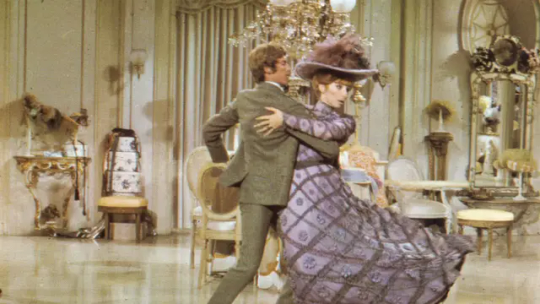
In his essay, "Is Car Wash A Musical?", Richard Dyer argues that a musical number in white musicals "embodies a sense of release from the confinement of everyday space and time, a glorious escape from the restrictions of modem living" (Dyer 95). This is how the numbers incorporate themselves into the character's lives, and how they create meaning in them. This is seen used in the film a lot in numbers like "Dancing", "Put On Your Sunday Clothes", and "Hello, Dolly!". In these scenes, the characters break into large scale, choreographed routines. The ensemble makes use of their space, whether they are in a park, a restaurant, or a platform at a train station.
youtube
In what ways are the songs and/or musical performances racialized and/or gendered?
Circling back to the beginning of the film, "It Takes a Woman" is clearly a very gendered number. Not only is the ensemble performing all male, but it talks about the want for a woman who does everything to keep herself pretty and "fragile", yet who is also happily willing to do several miscellaneous chores from "setting the table" to "cleaning the stable". Another example of a gendered musical number is Irene Molloy's (Marianne MacAndrews) "Ribbons Down My Back". This song speaks to her desire to find love, and how she will gladly wear ribbons down her back to be noticed by someone. The song looks to love with hope, and reinforces traditional female gender expectations by portraying Irene as the passive figure, simply waiting to catch a man's eye.
youtube
Moving away from the content of the songs, the way in which the songs themselves are performed and inserted into the narrative is a whole different story. The film falls within the characteristics of what it is that makes a white musical. These characteristics include non-diegetic music, reprises, cheery/love songs, and an escape from reality, topics I'll discuss further below.
What elements of the film align with White musicals’ longing to transform the ordinary into utopia?
Dyer speaks to the differences between white and black musicals, informing readers how race dictates how stories are communicated to their audiences. White musicals allow their white protagonists "opportunities for expansion and freedom", not confined to their reality alone as we briefly covered above when talking about how these numbers play into the character's lives (Dyer 95). The musical numbers are meant to remove the characters from the world, and insert them into some sort of utopia where music comes from nowhere and everyone knows the same dance.
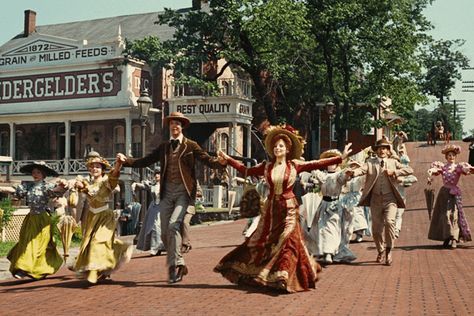
A strong element of the white musical utilized in the film is reprise. Dyer says reprise is "generally used either to mark the change that has occurred in the narrative (...) or to signal the closure of the show" (Dyer 95). Reprise, of course, is repetition, but it serves the purpose of expressing growth, resolve, and a happy ending for our characters. the number "Hello, Dolly!" has a reprise at the end of the film, a big number with the whole cast to celebrate the marriage of Dolly and Horace, and effectively welcome her "back into the world" after she was away so long in mourning. In black musicals, repetition in the form of the reprise isn't common, rather repetition remains a more consistent part of the narrative.
Another way the film aligns itself with the longing to transform the ordinary into utopia is how characters burst into song. Unlike in black musicals where the music often comes from within the narrative space, such as a radio or someone playing an instrument. These sudden musical numbers work to create spaces, as Dyer says, "freed from labor" (Dyer 97). Whereas white protagonists are encouraged to experience joy outside of the material world, black musicals often convey black joy as being experienced while working. This reinforces social expectations, and limits the black experience in musicals to a more stationary life devoid of growth. The film, however, makes it very clear that white joy lies outside of work, as Cornelius and Barnaby's whole journey involves abandoning their jobs and eventually quitting as it isn't worth giving up their newfound love for.
How does the film reflect the temporal circularity of Black musicals?
To further on this concept of growth within black and white musicals, Dyer talks about the concept of temporal circularity in black musicals. In black musicals, this circularity encourages stasis, as there is this understanding of "spatial boundedness" and of how "Black people don't get out of their situation, eventually or geographically" (Dyer 102). With this, the possibility for characters in a black musical to change their circumstances for the better is discouraged, as Dyer writes, "The musical numbers do not take the characters out of the moment, "transport" them, resolve their problems; the emotions and experience of the music do not lead to fundamental changes in their situation" (Dyer 104). However, these themes more commonly seen in black musicals are reflected in the film.
Though white musicals are able to provide a vision for a better world, it is often just that. Hello, Dolly! reflects this to an extent. The film ends where it began, Yonkers, New York, but we still see growth despite the circularity. The final scene is of Dolly and Horace's wedding, and the two other couples, (Cornelius and Irene, and Vandegelder's niece, Ermengarde (Joyce Ames) and Ambrose (Tommy Tune)) are also to be married. So despite this circularity, the characters were able to fulfill their desires expressed throughout the film.
youtube
Discussion questions
From what you can gather, how do both white musicals and black musicals imagine happiness?
Why is it that black musicals and white musicals focus on "two different constructions of happiness"?
Why do you think white musicals, in all their longing for utopia, still often fall short of that hope for change in the narrative space?
Can you think of any examples of contemporary black musicals that challenge the characteristics of black musicals? How about contemporary white musicals? Have you seen characteristics of either being utilized in any contemporary musicals today?
15 notes
·
View notes
Text
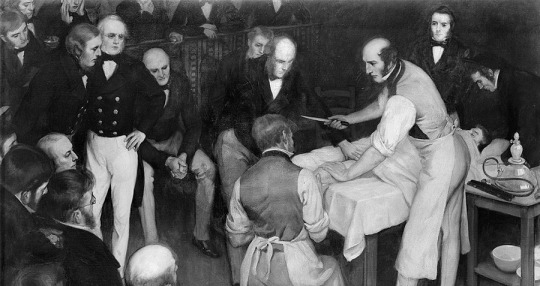

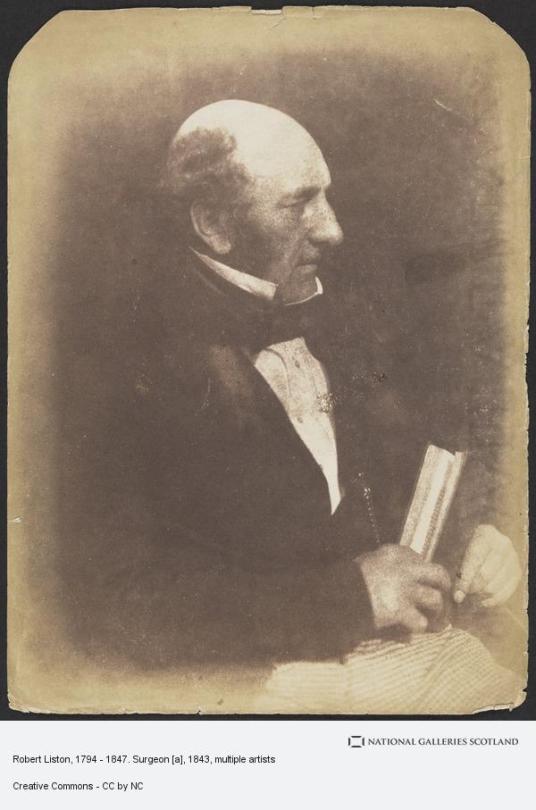
On October 28th 1794 Robert Liston, the first surgeon to use general anaesthetic in Europe, was born in Ecclesmachan, West Lothian.
Liston may be remembered for the anaesthetic but he was also the best surgeon around in the 19th century and quite a remarkable man.
Using an anaesthetic wasn't new, Alcohol is said to have been used in ancient Mesopotamia going back thousands of years, the opium poppy is said to have been cultivated and harvested by the Sumerians in lower Mesopotamia as early as 3400 BC but they were not controlled like they are today. The inventor of the safety lamp Humphry Davy experimented with the gas nitrous oxide in 1799 and found it made him laugh, giving it the term used to this day "laughing gas" Davy wrote about the potential anaesthetic properties of nitrous oxide in relieving pain during surgery, but nobody at that time did not pursue the matter any further.
American physician Crawford W. Long noticed that his friends felt no pain when they injured themselves while staggering around under the influence of diethyl ether., he didn't publish his findings until 1849 though, by then other doctors were using Ether.
Enter Robert Liston, the most skilled surgeon of his generation, so adept that he was described as "the fastest knife in the West End. He could amputate a leg in 21⁄2 minutes" this was at a time when speed was essential to reduce pain and improve the odds of survival of a patient.
The eminent English surgeon Richard Gordon said about Liston that:
"He was six foot two, and operated in a bottle-green coat with wellington boots. He sprung across the blood-stained boards upon his swooning, sweating, strapped-down patient like a duelist, calling, 'Time me gentlemen, time me!' to students craning with pocket watches from the iron-railinged galleries. Everyone swore that the first flash of his knife was followed so swiftly by the rasp of saw on bone that sight and sound seemed simultaneous. To free both hands, he would clasp the bloody knife between his teeth."
His methods were the envy and despair of other surgeons, their dislike of him meant he left Scotland and Gordon goes on to describe this in this paragraph
"an abrupt, abrasive, argumentative man, unfailingly charitable to the poor and tender to the sick (who) was vilely unpopular to his fellow surgeons at the Edinburgh Royal Infirmary. He relished operating successfully in the reeking tenements of the Grassmarket and Lawnmarket on patients they had discharged as hopelessly incurable. They conspired to bar him from the wards, banished him south, where he became professor of surgery at University College Hospital (London) and made a fortune"
Another wee bit of interest is his suspicions regarding Dr Knox on the body of a young woman that Knox had kept in whisky, on show in his dissecting rooms, her name was Mary Paterson and Liston suspected foul play in the manner of her death, he was right, her name was Mary Paterson and she had been "Burked" by the West Port murderers Burke and Hare in April 1828, they were paid £8 for the corpse, which was still warm when they delivered it, Fergusson—one of Knox's assistants—asked where they had obtained the body, as he thought he recognised her. Burke explained that the girl had drunk herself to death, and they had purchased it "from an old woman in the Canongate" The pair went on to sell a further 11 bodies to Knox before they were caught.
Liston on confronting Knox over the poor woman's demise is said to have "knocked Knox down after an altercation in front of his students – Liston assumed some students had slept with her when she was alive, and that they should dissect her body offended his sense of decency. He removed her body for burial." So I think we get a sense of the character of Robert Liston.
Some of Liston's most famous cases documented in a book by the aforementioned Richard Gordon were; removal in 4 minutes of a 45-pound scrotal tumour, whose owner had to carry it round in a wheelbarrow; Amputated the leg in 21⁄2 minutes, but in his enthusiasm the patient's testicles as well; Amputated the leg in under 21⁄2 minutes (the patient died afterwards in the ward from hospital gangrene; they usually did in those pre-Listerian days). He amputated in addition the fingers of his young assistant (who died afterwards in the ward from hospital gangrene). He also slashed through the coat tails of a distinguished surgical spectator, who was so terrified that the knife had pierced his vitals he dropped dead from fright.
That was the only operation in history with a 300 percent mortality!
But it is the first operation in Europe under modern anaesthesia using ether, that Liston is best remembered, on 21 December 1846 at the University College Hospital. His comment at the time: "This Yankee dodge beats mesmerism hollow", referring to the first use of ether by doctors in the US. The first operation using ether as an anaesthetic was by William T. G. Morton on 16 October 1846, in the Massachusetts General Hospital.
The first pic is Robert Liston performing an amputation in front of a crowd of spectators, the second are photoes by Hill & Adamson
17 notes
·
View notes
Text
Whumptober 2022 day 27

Muffled Screams | Stumbling | Magical Exhaustion
Gotta give credit to @stripedroseandsketchpads again because after I went in hard on day 1, she suggested the follow-up pain with Richard, Good shout at always, Kay! <3
CW: drink, drugs, so many cigarettes being smoked (Jerott calm down!). Canon-typical Dumbarton warnings: alludes to SA, dub-con, age difference, violence towards hotel furnishings and one another. Sibling disappointment.
Richard’s accent wanders a bit but it’s deliberate, I think you’d hear it more when he gets emotional.
---
It wasn't quite the standard of comfort Richard was accustomed to, but he nevertheless had a solid night's sleep in the Dumbarton hotel room. In fact, he'd have had more of it if he'd been permitted, but he found the concierge knocking persistently on his door when the morning was still cool and the summer sun low.
The man was apologetic when Richard answered - but resolutely firm. Doubtless the disturbance concerned money.
"Yes?"
"Mr Crawford MP, sir," he wrung his hands and smiled obsequiously.
"The title is unnecessary, thank you," Richard said through his palm as he rubbed his face. It was one way of making a point without resorting to blackmail, he supposed.
"I am sorry to disturb ye, sir. However, I have a question concerning the gentlemen you were drinking with last night?"
Of course. Richard snorted at the description gentlemen.
He recalled the sight that had greeted him when he'd entered the hotel bar: a witches coven convening under clouds of smoke and noxious smells; the air thick with vicious language and cursing, intense with their plotting; the table littered with vessels of poison and unpleasant bits of animal (well, pork scratchings).
For once, Richard's little brother had not been acting the ringleader. That role been reserved for the man Richard was there to see, one Jock Thompson - a deeply unsavoury character whom local rumour named as the source of a pirate radio station which was becoming a thorn in the side of some of Richard's constituents. And right now, as if to simply compound the everyday, prosaic headache that was Richard's political work, Thompson appeared to be in cahoots with his brother.
Francis had met Thompson in New York, in his mob days - and Richard figured that there was therefore no way Thompson would have escaped the attentions of certain international agencies. With this in mind, Richard had resolved to talk to Tom Erskine, his friendly MI6 spook, in order to learn more about the rogue and about what, exactly, Thompson had been involved in Stateside.
But last night he had let Francis take the lead on dealing with the fast-talking Clydesbank huckster. Francis had been on his most charming form when Richard had arrived - smoking, unusually, and smiling, which also left Richard suspicious. There were even empty glasses in front of him, and a not-yet-empty one in his hand. Nevertheless, he had been in control of himself, silver-tongued, cryptic where he needed to be and direct when going in for the kills. He'd been the very model of responsibility and leadership, in fact - though in all honesty, Richard didn't know what they were talking about most of the time. Serial numbers and brand names were batted back and forth, drop-off locations suggested, quality of gear and modifications already in place ascertained and judged.
To one side of his brother sat the quiet keyboard player Richard had guessed was a junkie by his unhealthily skeletal frame. He rolled his cigarettes, neatly, steadfastly, constantly - there was a little collection in front of him, like the act of rolling was as comforting as smoking them. Occasionally, he leaned over and muttered technical specifications to Francis. On the other side, the only sober one at the table, was Francis' hippy friend in his customary pink and red clothing, who was smoking his packet of fags at a furious pace, trying to look disinterested in the negotiations even as his moody gaze kept being drawn back to Francis.
They'd kept going even after Richard had said his own piece to Thompson, finished off a modest portion of mince and skirlie and his pint of heavy and announced his departure around midnight.
Now, looking at the concierge, Richard worried just how late it had got - and how long his brother's composure had lasted.
"Aye," Richard said cautiously. "I did have a pint with them, you're not wrong."
The concierge smiled sympathetically. "Yes. Well, they had significantly more than one each. And the tab was in Mr Thompson's name, ye see and Mr Thompson has left without -"
"Without paying..." Richard finished for him with a groan. "Look, I appreciate that you trust me, but the others were with him for a lot longer - have you tried their rooms?"
"Yes sir. Messrs Blacklock and...uh...Vadan, it says here. Maybe a false name? They've left, too."
"And -" Richard hesitated, thinking of the headlines. The news would out anyway, though, it always bloody did, and Francis' name would be on the hotel register too. "And my brother?" he sighed.
"Left an exceedingly specific request not to be disturbed."
Specific and well-funded, no doubt, Richard thought, though he let his brows shoot up. "Which you obey despite the others thieving from you?"
"Well," the concierge conceded with a shrug. "I just thought I'd try you first, sir. What with ye being, as ye said yerself, trustworthy. A public servant, sir."
Richard nodded in understanding. "Let me go and speak with my brother. Here's my card, I'll come and pay you if he doesn't." Richard retrieved his wallet from the sideboard and handed his bank card to the concierge. He checked the man's expression carefully, ensuring that he wasn't also looking out for a bribe, and then nodded and shut the door.
It didn't take him long to dress - on the weekend, away from his office, away from Westminster, he was presentable in chinos (never red), a long point shirt left a little open without a tie, and a v-necked jumper (always red). He shaved quickly, listening to the beginning of the Today Programme on the wireless and muttering imprecations about the government. Then he pocketed his room key before going in search of Francis' door. As he went, he wondered what on earth could have led to Francis' bandmates leaving without him in the middle of the night. Had they needed to go and make their bargain with Thompson then and there? At least the hippy lad had been sober enough to drive, Richard thought ruefully.
His knock on Francis' door received no reply. He stood outside his room listening for a moment, thought he discerned some faint squeak of a mattress and sighed. Even Dumbarton had groupies, he supposed.
He went to check Blacklock's room and that of the lad in pink - he'd been called Jerott before the commune, Richard thought - just to be certain. No answer came, of course. Richard peered out of one of the large, single-glazed windows in the corridor and ascertained that the minibus they used for touring was gone. How on earth did Francis suppose he'd get back to his country estate? Was he hoping for a lift from Richard?
Richard marched back to his brother's door, knocked again, rattled the handle and even slammed his palm hard on the surface.
He took a step back, shocked, when he heard a muffled scream from behind the door - not Francis' voice, but a girl's.
"Francis! Stop playing Mick Jagger in there, I've got business with you, ye everloving playboy!"
Something banged against the door and there was a sound of scuffling - a woman growling in frustration, a man laughing - then a weighty thud.
Francis spoke from the other side of the wood, and his voice sounded high-pitched and strange, manic and unsteady with glee. "Morning, brother! Don't fret about me. The others are just running an errand and will be back to fetch me shortly," he paused like he was considering something and then stifled a snigger. "If Thompson hasn't paid the tab, would you sort it? We can square up later."
There was another crash as something impacted on the door near where Lymond's voice had been. Richard flinched away reflexively and glowered at the glossy white paint on the surface. "Aye, Francis. Aye sure - if ye survive yer guest," he grumbled drily. "Have the boys gone off wi' yer purse?"
Francis said nothing. Richard listened to the silence with nausea rising at his throat. The smell of breakfast was starting to waft through the hotel and it turned his stomach with its offer of domestic comfort, a poor filter over the dissolute things going on in that room.
Then he could hear a female voice, young and shrill, but rising in pitch until it was cut off by a resounding slap. The sound of it made Richard's teeth ache, like he could feel it in his own cheek. He rattled the metal handle again, wishing he couldn't hear the cruelty in his brother's voice through the door. Francis had never spoken like that to anyone, not in Richard's presence.
"Francis!" Richard barked again, hoping to remind him of himself. What the fuck had happened? He hadn't even seemed drunk last night.
At last there was the rattle of a key on the other side of the door, and Richard steeled himself.
Standing in the other side of it was a horror even he couldn't have anticipated: the sweet little sister of Francis' hippy associate Graham Reid Malett. Sixteen and thrilled to get her first taste of opportunity in the world. As pure as Eidelweiss from the Swiss mountains she'd descended from, as accomplished as a finishing school girl ought to be, as talented and passionate a musician as her generation had seen - that was how Richard had known her.
Francis, evidently, had chosen to trample that delicate mountain flower beneath the relentless marching boot of his ambition.
She stood there wrapped in a tartan throw that had been dragged from the bed, naked but for the itchy wool and the fresh injuries she bore. Her cheek was red from Francis' palm, her neck was bruised by his teeth and - Christ, Richard noted with horror - there was blood on her fingertips.
Francis, wearing only a flannel gown provided by the hotel, gestured in introduction to her, gave a little bow and turned away from Richard to walk through the wreckage with his bare feet, to pick up an open champagne bottle and swill back the remnants.
Richard stared at Joleta and her tear-stained cheeks. The tracks of mascara were blue on her skin and her face and eyes were puffy from the night she'd spent. Her pupils didn't look right to Richard either, like she was, or had been, high. He shook his head, his mouth crumpling in confusion and upset, and extended comforting arms to her, offering to catch her and hold her.
Joleta just let her bottom lip jut out miserably and said with a sob, "There's no helping it. I tried."
Tears spilled over her eyelids again and she took one stumbling step and then dropped to the carpet too quickly for Richard to do anything.
He bent over her weeping body and looked up at Francis' back, his mouth agape in distress.
"Hush, hush," he told the girl, looking down again, trying to put her woe before his numb fury. He sought to tidy her hair away from her sticky face and scooped up her body, blanket and all, with an ease that made him sway, his heart heavier than her wee frame was.
He lay the girl down on the ruined bed, leaving her in her delirium on a bare mattress patterned with gold and blue paisley. Her shining hair fanned out and mingled with the pattern on the fabric, her aquamarine eyes were a dull reflection of the satin below her.
Richard shut the door to the room and leaned heavily on it, feeling shock tangle inside him and drag on all his faculties. What could he say? The floor was covered with glass and the detritus that remained of the room's decor. There was cocaine on the sideboard, the stink of weed in the air, and who knew what else a thorough search would turn up.
"So this is it, Francis? The noble purpose of your music? The reason Tom did all that he did to help you out of your legal woes? The reason Gideon died and Chris was left too damaged to play her own damned material? This is the...output of a man who wants to position himself as a saviour of the arts and a patron of the unloved?"
Francis didn't turn. The back of his shining blond hair was dark with sweat, coiled and dirty-looking at the nape of his neck.
"I'd sooner have found you dead," Richard said softly. He was thinking of their little sister, who had disappeared when she was the age of the girl lying motionless on the bed. Who had taken a cocktail of drugs she'd only had access to through Francis, and stepped out into the abyss of the night, suffering from a fatal disappointment in life - in the brother that should have been taking care of her.
Richard stared at Francis' back as he let out a strained laugh, and he thought he understood now how Eloise must have felt.
#whumptober2022#whumptober#band au: disorderly knights#every day i write the book#character: francis crawford#character: richard crawford#character: jock thompson#character: joleta reid malett#character: adam blacklock#character: jerott blyth
8 notes
·
View notes
Note
❤️ favorite phantom of the opera
Buckle up, my children, because I'm going to do this one across multiple dramatizations and it will be A (non-ranked) List:
Lon Chaney: The man, the myth, the legend. Absolute master-class in physical acting. Makeup game that has yet to be equaled (even though we have CGI now and could absolutely make it work without compromising vocal performance). Deserved a proper Leroux-accurate ending but ah well.
Michael Crawford: The man, the myth, the legend pt. 2. Hearing him sing "Music of the Night" was DEFINITELY a formative moment in my sexuality. Did more with a whisper and a flick of his hand than many actors do with a full evening of dramatics.
Brad Little: Holy shit the HANDS. Able to seduce you and scare you and make you cry all within a few minutes.
Gary Mauer: The only one to make both my Top Phantom and Top Raoul lists (Beth Southard got her a man who could do both). Like Brad Little, a good "whole package" performance that's both charismatic and terrifying.
Charles Dance: My first, and therefore a special place in my heart. His acerbic wit definitely influenced how I hear the character in my head.
Richard White: So Kopit!Erik has this reputation for being a softboi, and yes he does tend towards that end of the character's matrix. But he's also one of the few non-Leroux Phantoms who goes into "I swear I will BLOW THIS PLACE UP if you keep fucking with me" territory and I think a lot of people forget that edge. Richard White didn't; he's got this absolutely unhinged element that rounds out the character nicely. Seriously go find the bootleg on YouTube, like now.
Wao Youka: Gerard Butler WISHES he was able to pull of the "hot Phantom" thing half as well. Voice like warm chocolate, presence like a queen, thigh boots like a dominatrix. I'm torn between wanting her and wanting to be her.
35 notes
·
View notes
Photo






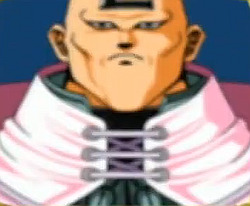

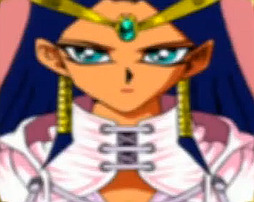

The Duelists of the Roses Character Profiles - Yorkists/The Whites
Name: Christian ‘Seto’ Rosenkreuz
Deck Leader: Blue-Eyes White Dragon
Location: Stonehenge, England
Pre-Duel Dialogue: “You’re here much sooner than I expected. I knew that Crawford would turn on us one day. But I didn’t expect the tide of battle to turn so soon. Actually, Crawford’s betrayal and the fall of the Yorkists matter not to me. All I hoped from this tiresome struggle was to find an opponent worthy of my attention! When I knew you’d been summoned I chose to wait. Each time a member of my Rose Crusaders fell before you I shivered in anticipation. Once you beat the final member I knew you were ready to face me! Long have I starved to best a duelist equal in power to me, hungered to best such an opponent in battle! You wish to have my Rose Card? Then take it from me! Face me in battle, Duelist!”
Player Win Dialogue: “Well done, Duelist. I may have lost, but my heart sings with the joy of having faced you in battle.”
Name: Weevil Underwood
Deck Leader: Basic Insect
Location: Chester, England
Pre-Duel Dialogue: “Hehehe. So, you’re the legendary Rose Duelist. Prepare to face the wrath of my Insect deck!”
Player Win Dialogue: “Nooo! I lost! This can’t be happening!”
Name: Rex Raptor
Deck Leader: Two-Headed King Rex
Location: Tewkesbury, England
Pre-Duel Dialogue: “The Rose Duelist, eh? I’m not impressed. In fact, I’ll crush you to a pulp with my Dinosaur deck!”
Player Win Dialogue: “What?! Me!? Lose?! I don’t believe it!”
Name: Necromancer
Deck Leader: Pumpking the King of Ghosts
Location: Exeter, England
Pre-Duel Dialogue: “Oooh, my Zombie deck hungers for a taste of you.”
Player Win Dialogue: “Argh! You’d be a fool if you think you’ve seen the last of me!”
Name: Darkness Ruler
Deck Leader: King of Yamimakai
Location: St. Albans, England
Pre-Duel Dialogue: “You dare challenge the Dark deck of the Darkness Ruler?! Rose Duelist or not, you don’t stand a chance!”
Player Win Dialogue: “No! How can it be? How could I lose!?”
Name: Keith
Deck Leader: Slot Machine
Location: Towton, England
Pre-Duel Dialogue: “So, you’ve managed to beat a few minor duelists. Well let’s see how you fare against my Machine deck!”
Player Win Dialogue: “I can’t believe you actually beat me! Me! The ‘Card Professor’ of the Rose Crusaders!”
Name: Labyrinth Ruler
Deck Leader: Monster Tamer
Location: Newcastle, England
Pre-Duel Dialogue: “What brings you to this northernmost region? Lost? If you want some directions, you’ll have to beat me first!”
Player Win Dialogue: “Unbelievable! You’ve won yourself a light to guide you out of this labyrinth!”
Name: Lord Pegasus Crawford (Thomas Stanley)
Deck Leader: Illusionist Faceless Mage
Location: Lancashire, England
Notes: Has a son that is being held hostage by Richard Slysheen (Richard III).
Pre-Duel Dialogue: “Wow! So you’re the famed Rose Duelist! I am Pegasus Crawford, the Champion of the Northlands, the noblest of Yorkists, and master of the Rose Crusaders. I am also known to some as Thomas Stanley, or Lord Stanley to my friends. Seto has told me much about you, dear Duelist. Seto has taught me a thing or two about dueling. So, come on! Let’s duel!”
Player Win Dialogue: “You must be joking! Me? Lose? Never! Oh dear... You might be stronger than Seto... I really enjoyed that! I’ve learned a lot from you. In fact, you’ve done wonders for my game! Oh, by the way: I’m afraid I don’t have any Rose Cards. Sorry.”
Name: Ishtar
Deck Leader: Witch of the Black Forest
Location: Isle of Man, England
Pre-Duel Dialogue: “Amazing. I never thought you would reach the point where you could challenge me. Too bad that it all has to end here...”
Player Win Dialogue: “I’m not surprised, you know. I knew I was destined for defeat. I can live with that.”
Name: Richard Slysheen of York (Richard III)
Deck Leader: Battle Steer
Location: Bosworth, England
Pre-Duel Dialogue: “I see you’ve got Rose Cards! You must be one of Lord Crawford’s Rose Crusaders. Your timing couldn’t be better! When I heard Yugi had landed, I rushed my troops to the front. However, I arrived much too early. It will be some time before Lord Crawford and his men arrive. In the meantime, why don’t we play a duel or two. I learned a trick or two from Seto that I’d like to try out. It’s not every day that you have the great opportunity to play the great King Richard III of England! How about it?”
Player Win Dialogue: “Drat! I lost!”
75 notes
·
View notes
Text
MOBILE MUSE LIST
television
THE 100
bellamy blake + bob morley
clark griffin + eliza taylor
jasper jordan + devon bostick
john murphy + richard harmon
octavia blake + marie avgeropoulos
raven reyes + lindsay morgan
AMERICAN HORROR STORY
madison montgomery + tati gabrielle
misty day + lily rabe
THE HAUNTING OF BLY MANOR
flora fairchild + india eisley
THE HAUNTING OF HILL HOUSE
luke crain + oliver jackson cohen
theo crain + kate siegel
film
AGE OF ADALINE
adaline bowman + blake lively
THE COVENANT
caleb danvers + steven strait
pogue parry + taylor kitsch
reid garwin + toby hemingway
tyler simms + chace crawford
DC
billy batson + asher angel
cassandra cain + ella jay basco
chato santana + jay hernandez
floyd lawton + michael b jordan
freddy freeman + adam brody
harley quinn + margot robbie
lucy quinzel + chloe moretz
selina kyle + ana de armas
THE DESCENDANTS
carlos de ville + ross lynch
chad charming + nicholas galitzine
evie grimhilde + sophia carson
jay + booboo stewart
mal bertha + dove cameron
malinda bertha + elizabeth gillies (oc)
DISNEY
anna + sadie sink
aurora + elle fanning
belle + troian bellesario
chip potts + asa butterfield
elsa + gabriella wilde
eugene fitzherbert + thomas mcdonell
merida + sophie turner / eleanor tomlinson
moana + auli’i cravalho
maui + jason momoa
rapunzel + lily james
tinkerbell + freya allen
vanellope von schweetz + mackenzie foy
FEAR STREET
deena johnson + kiana madeira
ruby lane + india eisley
sarah fier + kiana madeira
IT
avery hockstetter + felix mallard
beverly marsh + jessica chastain
bill denbrough + james mcavoy
eddie kaspbrak + timothée chamalet
greta keene + sabrina carpenter
henry bowers + nicholas hamilton
mike hanlon + isaiah mustafa
patrick hockstetter + owen teague
richie tozier + bill hader
stanley uris + andy bean
JURASSIC WORLD
maisie lockwood + mackenzie foy
MARVEL
peter parker + tom holland / andrew garfield
THE OUTSIDERS
curly shepard + jordan connor
johnny cade + steven r mcqueen
ponyboy curtis + jake t austin
US
adelaide wilson + lupita nyong'o
red + lupita nyong'o
misc.
GREEK MYTHOLOGY
aphrodite + nyané lebajoa
cerberus + aidan turner
dionysus + toby regbo
hades + cheyenne jackson
hermes + faceclaim
persephone + gugu mbtha raw
poseidon + jason momoa
literature
HARRY POTTER
cormac mclaggen + freddie stroma
dominique weasley + faceclaim
hannah abbott + faceclaim
hermione granger + jessica sula
lily luna potter + luca hollestelle
lucy weasley + elle fanning
luna lovegood + evanna lynch
millicent bulstrode + barbie ferreira
neville longbottom + matthew lewis
rose weasley + ashley moore
scorpius malfoy + austin butler
THE VAMPIRE CHRONICLES
lestat de lioncourt + cody fern
louis de pointe du lac + felix mallard
original characters
alejandro valdez + danny ramirez ( serial killer based on ahs' the night stalker )
axel zimmermann + aidan turner ( vampire )
elijah catton + jacob elordi ( twin brother of @everyoneismytoy's felix )
gabriel + jamie campbell bower ( archangel )
isabelle blackwood + taylor momsen ( witch )
michael fitzpatrick + max thieriot ( spn hunter )
oliver todd + richard harmon ( serial killer / nightclub manager associated with @painofhumanity's alexander )
2 notes
·
View notes
Text
"How many souls on this earth call you Francis?"
In 60 years of the Lymond Chronicles, I'd bet that many others have compiled this exact thing, but here is a list of who calls Lymond by his first name! Marthe draws our attention to the question near the end of Pawn in Frankincense, but it's clear throughout the series how deliberately Dunnett chooses what to call the characters in narration and dialogue - the choice can reflect who Francis Crawford (for example) is to others as well as to himself, at any moment. I love it, and Meaningful Naming is a feature of most of my favorite stories.
Characters are listed with the book in which they first call him Francis in dialogue. Italics indicate they call him that when he isn't present. If they directly Francis him later, they’ve been added to the list for that book, too.
I've also noted to whom he's just Francis in the narration - it's always someone who thinks of him like that, and it always makes me feel a lot.
If you notice something I left out, or if you know where to find similar analysis, let me know! Let us all be scholars of Francis.
Lists below! Plus some thoughts and quantitative stuff. (many, many spoilers)
The Game of Kings
Sybilla Semple (see, I have to decide what to call all of these characters, too!)
Margaret Lennox
Christian Stewart (to Sybilla, and I'm sure she called him Francis in their childhood)
Richard Crawford
Francis in narration from the POV of: Richard
Queens’ Play
Tom Erskine
Jenny Fleming
Margaret Erskine
Martine
Oonagh O’Dwyer
Phelim O’LiamRoe
Francis in narration from the POV of: Richard
The Disorderly Knights
Will Scott
Kate Somerville
Graham Reid Malett
Adam Blacklock
Janet Beaton
Jerott Blyth (I'm also sure Jerott called him Francis in the old days, but he doesn't return to it until the scene with Evangelista Donati at Midculter)
Francis in narration from the POV of: Richard, Tom, Kate, Sybilla
Pawn in Frankincense
Jerott Blyth
Dame de Doubtance
Marthe
Francis in narration from the POV of: Jerott
The Ringed Castle
Alec Guthrie
the Abbess/Sybilla's sister
Francis in narration from the POV of: Richard
Checkmate
Philippa Somerville
Marguerite de St. Andre
Catherine d’Albon (to Philippa)
Nicholas Applegarth (also to Philippa)
Adam Blacklock
Danny Hislop
Francis in narration from the POV of: Jerott, Philippa, Richard, Sybilla, Adam
Observations
Aaaaah!
Richard's monopoly on the narration Francises in the first two books kills me, I love it. The first, of course, is "God, Francis had screamed."
As a reader, I started calling him Francis, sometimes, somewhere in the middle of Queen's Play and stopped overthinking it by the beginning of the next book.
I didn't count, but I'd bet that Jerott says and thinks it the most. He's there more than probable runners-up Gabriel (shut up, Gabriel) and Richard (ily Richard) are, and Philippa goes on her own ... journey before thinking of him that way and allowing herself to think of him that way.
Adam is unique for making the list in his first book, specifically not calling Lymond Francis in The Ringed Castle, and then putting himself back on the list through address and narration in Checkmate. But that's The Ringed Castle for you 😬. And their entire relationship - there's a chapter or so in which Adam's narration calls him de Sevigny.
Who even calls him Francis in RC? Just Alec, Richard, and Margaret, I think. ("Do you call her Slata or Baba?" Thank you, Philippa.)
I would teach myself tarocco and play for at least a few hours to learn when Will started calling him Francis. Also the Erskines! They're all so genuinely close in the years after Game of Kings.
Notable Absences
Güzel - well, that feels meaningful. They were together for years. If she did, we didn't see, and I would also believe that she didn't.
Archie - will he ever? Who can say. Either way, he's the best. Also, see here.
Mariotta - I bet she does, after the first book, we just haven't been there.
Fergie, probably?
Piero Strozzi - Francesco? My petit François? I don't remember any Francises, though!
Ivan (and others?) - I'm not counting Frangike, either
Robin Stewart - I mean, I'm sure he would have if he'd known his boyfriend's real name before ... all of that went down.
Diccon Chancellor - probably not? I'd also put this down to the Ringed Castle state of mind. As meaningful as their friendship was, it makes sense for the book to continue to distance the reader, at the very least, in that way.
Does Francis call himself Francis?
No.
He doesn't, really! He's never that from his own point of view, but we do see him sign a few letters with his first name. These are to:
Kate (Pawn in Frankincense)
Catherine d'Albon (Checkmate)
Philippa (Checkmate)
All of this is not to say that “Francis” represents who he truly is; it certainly shows intimacy and usually vulnerability, but I feel that Lymond and Francis Crawford can be just as definitive when deployed, and that Lymond has a certain neutrality. There's also something really interesting that happens when the characters are stripped of names and become just "he" or "she," from their own perspective or others.
And then we get things like "Mistress Philippa's decorative husband," which really deserve their own list.
"How many souls on this earth call you Francis? Three? Or perhaps four?"
18 of the 25 Francis-ers on my list are living at the end of the series, and when Marthe, who is not one of them, asks that question at the end of PiF, it's 12 (out of 18 total).
18 out of 25 is a 72% survival rate! Great!
2 of the 18 are pretty awful (Margaret Lennox and the Abbess)
4 of the 18 live in France, which he's currently exiled from
1 of the 18 lives in Ireland, but I think they should still hang out!
2 of the 18 may be departing for Malta, apparently
7 of the 18 are people he probably sees or keeps in touch with regularly, 9 if I count Janet Beaton and Margaret Erskine, because I like them and they're not very far away.
As much as I wish that many of the others hadn't died, I think he's doing pretty well.
#FRANCIS CRAWFORD#lymond#lymond chronicles#checkmate#dorothy dunnett#dear lord this got long#but i had fun#and it's mostly just lists#thank you marthe for that quote#something i
62 notes
·
View notes
Text
Mostly FREE Vampire Books
I am not as well-read with vampires, but I'm making up for lost time. Here are the vampire books I have read and my take on them.
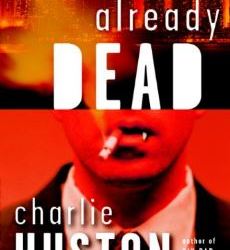
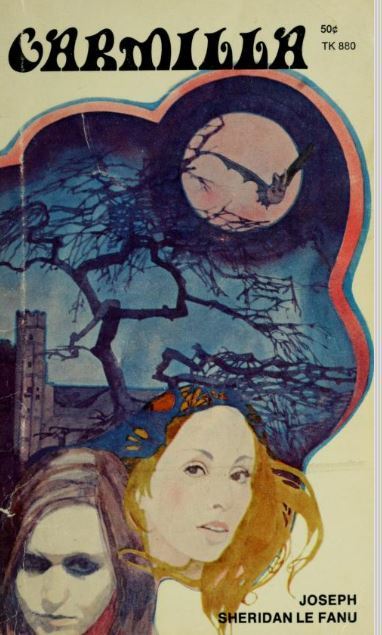
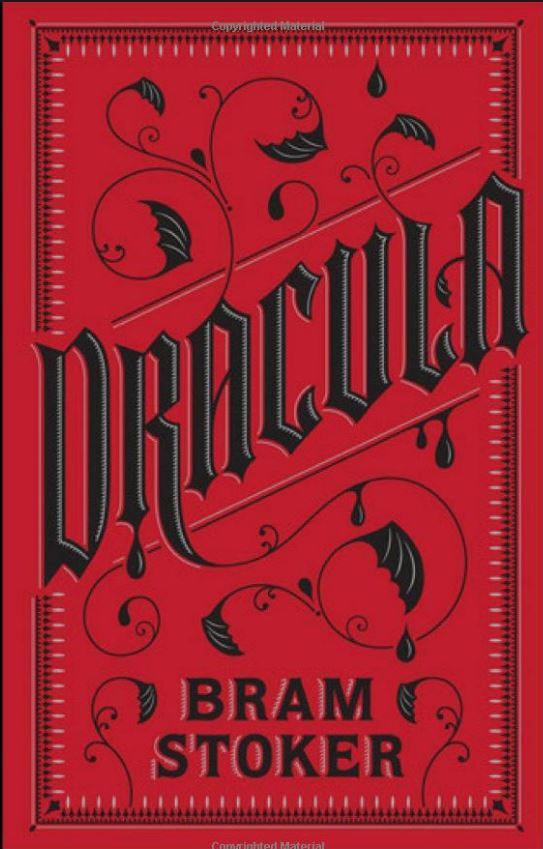
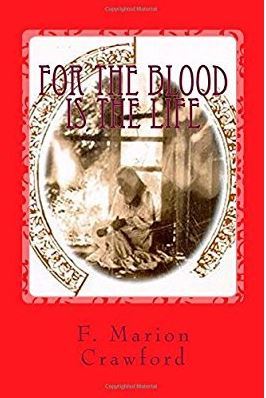
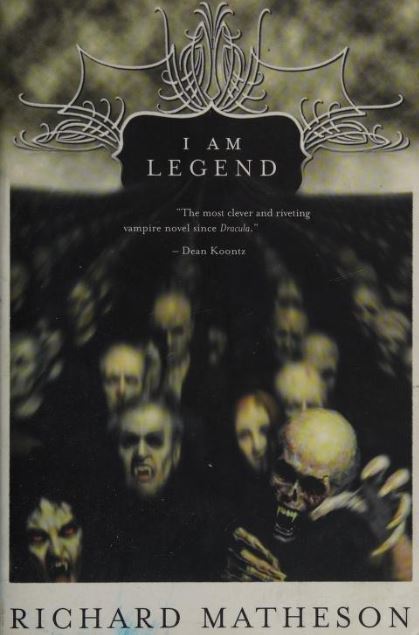
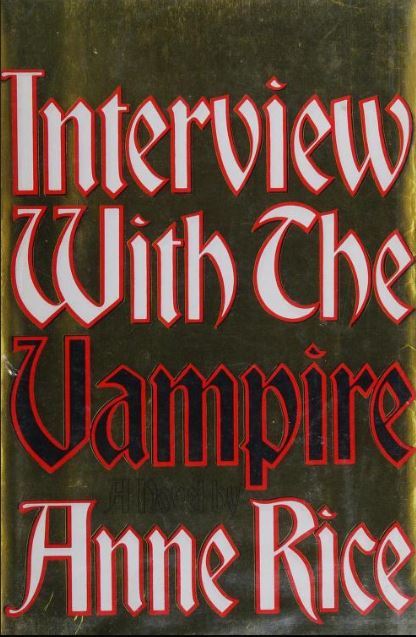
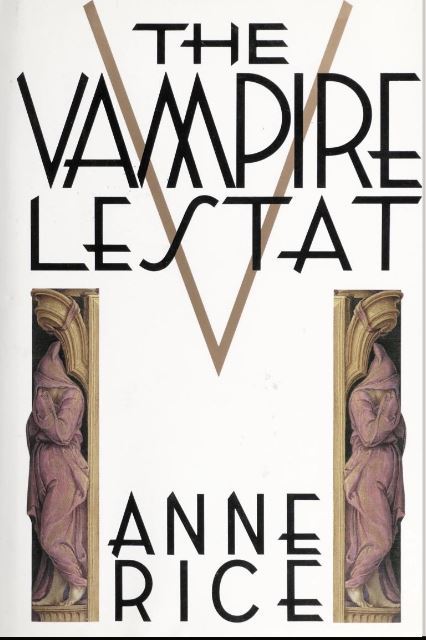
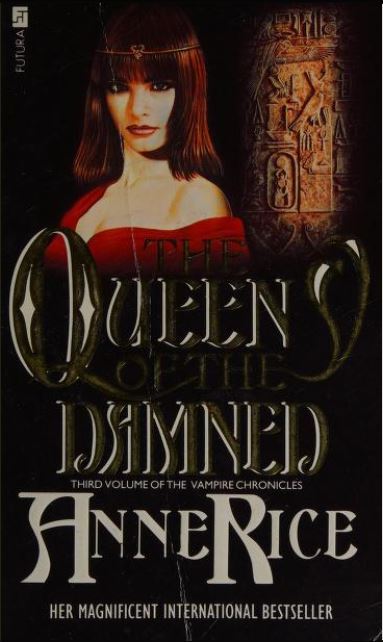
In this, Carmilla, Dracula, For the Blood is the LIfe, Already Dead, I am Legned, and the first three novels of Anne Rice's Vampire Chronicles. For all books, I will try to include a link to either a free version or to a borrowable version from the internet archive. You can make an account and check out the books legally.
Carmilla by LeFanu, Joseph Sheridan
The classic. The one, the only. It's a short read, which is disappointing. However, the ending is very gory with a scene that would have looked amazing in a modern movie. If you want a steamy reading of the novel on audio book, Audible has THIS beauty with a full cast and some heavy breathing. However, this audiobook version is provided free by the internet archive.
Dracula by Bram Stoker
I love this book. I did Dracula Daily this year, and I'll probably do it again next year. I'm going to listen to the audiobook of it for funsies. The beginning is, i think, the best part. The ending was disappointing, but the novel is still very exciting and scary.
For the Blood is the Life By F. Marion Crawford
I feel like this short story is actually a better example of a "modern" vampire story. I've read a lot of older vampire stories, and they all are a little too steeped in old lore to be really satisfying as a modern reader. However, this one has everything. A really creepy beginning. An exciting story. A romantic vampire seduction leads to potential death. The vampire is a woman and justified, so in a modern retelling, I think she would be the hero.
I am Legend by Richard Matheson
I read this on audiobook at 2x speed, because the POV character is kind of a jerk. An interesting look at trying to explain vampirism from a scientific perspective. It does not have the same ending as the movie by the same name. Misogyny abounds. But a woman ends up winning in the end so... maybe? I will admit, I'm still not sure how I feel about this one. On the one hand, it was engaging. I enjoyed the author trying to explain away the lore from a logical perspective.
Interview with a Vampire, The Vampire Lestat, and Queen of the Damed
Interview with a Vampire was a fine book. I read it at the same time I was reading Dracula for the first time, and there were definitely moments where Dracula outshined it, but then others where Interview was obviously more interesting because it was more modern. The movie is more engaging and a shorter investment of time. However, Armond is different in this one, so you kind of have to read it to get the next book (OR, watch the movie and read the Wikipedia summary of the book to get the differences). Vampire Lestat is a really good book for the most part. It lags after the middle but picks back up for the ending. I could have read more about Lestat's early days, and I could care less about all the exposition. Queen of the Damned was not a fun read. I can not stress this enough. It was mostly boring. I only read it because I've been told you have to read it to enjoy the rest of the series, which gets better. Lots of exposition. Any chapter in Letsat's POV is great. Everything else is not very exciting. Overall, I don't like Anne Rice. I HATE that her vampires communicate telepathically. It's cool and all, but it makes for very boring reading. Entire chapters where the characters are standing still in a room, not saying anything, not doing anything, while one of them "talks" to the other about the past with their mind. There was real potential here to "show" us what was happening, but oh no. It's all done through exposition. It was really innovative for its time, but because so much of her lore has been incorporated into modern vampire stuff, it doesn't feel fresh anymore. Especially when we get to Queen of the Damned, Anne feels very pretentious in her writing. She includes poems from her husband that I don't feel like add anything to the text, and in fact take you right out of it because you're reminded that she's literally including her husband's poetry. ALL THAT SAID, the books provide that FEELING of wanting to read vampire fiction. They're very atmospheric, so I will continue to read them and enjoy them for that aspect.
Already Dead by Charlie Hudson
The only non-free one on the list. I included it, because I read it. Main character is a vampire detective, but he doesn't have fangs. I think vampirism is a stand-in for AIDS, but that's a guess. An interesting concept and I did sort of enjoy the read, but it lacks (for me) the classic vampire lore to make it really fun.
That's all for now. More later as I can pull them to gether.
@rinniiart, I hope this wasn't too much. I wanted to take some time and find free versions of things as I went so you and others wouldn't have to shell over a lot of money.
14 notes
·
View notes
Photo

Title: Into the Woods
Rating: PG
Director: Rob Marshall
Cast: James Corden, Emily Blunt, Meryl Streep, Anna Kendrick, Daniel Huttlestone, Lilla Crawford, Mackenzie Mauzy, Tracey Ullman, Chris Pine, Billy Magnussen, Richard Glover, Frances de la Tour, Christine Baranski, Tammy Blanchard, Lucy Punch, Simon Russell Beale, Joanna Riding, Annette Crosbie, Johnny Depp
Release year: 2014
Genres: comedy, fantasy, drama
Blurb: In a woods filled with magic and fairytale characters, a baker and his wife set out to end the curse put on them by their neighbour, a spiteful witch.
#into the woods#pg#rob marshall#james corden#emily blunt#meryl streep#anna kendrick#daniel huttlestone#2014#comedy#fantasy#drama
5 notes
·
View notes